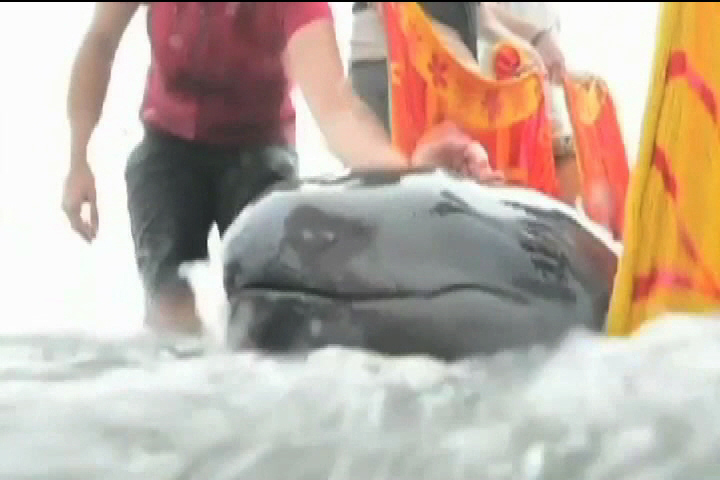
CHEK
UPDATE: Vancouver Park Board voted to prohibit import and display of any new cetaceans at Vancouver Aquarium.
UPDATE: The Vancouver Park Board voted to officially ends imports and displays of new cetaceans at Vancouver Aquarium by a vote of 6-1 on Monday night.
Rescues like the one of a young false killer whale on Chesterman Beach near Tofino in July 2014 might soon be a thing of the past.
That’s because the Vancouver Park Board amended a bylaw tonight that will make it illegal for new cetaceans, like porpoises, whales or dolphins, to be taken to the Vancouver Aquarium.
“My opinion is that where and when we can to provide wildlife a helping hand, because as humans we are contributing to to the difficulties that many species face around the world.” said Metchosin-based Marine Zoologist Anna Hall.
Hall thinks the amendment would be a bad decision.
“This particular decision relates to whether or not we can help wild animals and perhaps alleviate a little bit of suffering or injury and hopefully return them back to the wild.” she said.
While the amended bylaw might allow for injured cetaceans to be taken to the aquarium, they wouldn’t be able to be kept there long term and that is the real problem because there isn’t anywhere else in BC to take them.
“It’s just not practical to look at building a facility outside the aquarium and that’s the reason there aren’t any in Canada” said Vancouver Aquarium CEO John Nightingale.
“I suppose our next nearest might be something in Washington State but then we really start looking at crossing borders, expenses, travel times for the animals and the stress that causes.” added Hall.
The Park Board wants to eventually completely ban the display of cetaceans at the Aquarium, a change that was prompted by the deaths of resident beluga whales Keela and Aurora.
However a UVIC professor says that would spell the end of legitimate education for visitors.
“There’s very good evidence that once people leave, especially young children leave after having that experience that they are more invested in those species and their environments and their survival prior than seeing them” said University of Victoria Historian Jason Colby. “And there isn’t the equivalent impact by say just watching a good documentary.”





